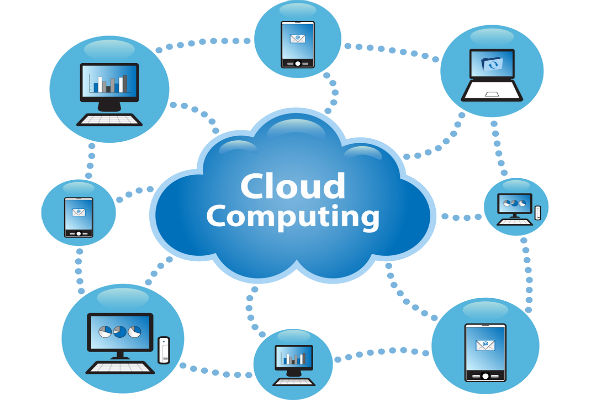Navigating the Cloud: Exploring Cloud Computing Courses

In the ever-evolving landscape of technology, cloud computing has emerged as a transformative force, revolutionizing the way businesses operate, store data, and deliver services. As organizations increasingly migrate their operations to the cloud, the demand for skilled professionals proficient in cloud computing technologies continues to soar. Cloud computing courses have thus become a cornerstone for individuals seeking to embark on a career in this dynamic field or enhance their existing skill set. In this comprehensive guide, we delve into the world of cloud computing courses, exploring their significance, key components, popular certifications, career prospects, and the broader implications for the future of technology.
Cloud computing courses encompass a diverse array of topics and disciplines, catering to individuals with varying levels of expertise and interests. These courses are designed to equip students with the knowledge, skills, and practical experience needed to navigate the complexities of cloud computing technologies. From fundamental concepts to advanced techniques, cloud computing courses cover a wide range of subjects, including:
Introduction to Cloud Computing: Providing an overview of cloud computing principles, architectures, and deployment models, introductory courses lay the foundation for understanding the fundamentals of cloud technology.
Cloud Infrastructure and Services: Delving into the core components of cloud infrastructure, such as virtualization, networking, storage, and computing resources, these courses offer insights into the building blocks of cloud-based systems and services.
Cloud Platforms and Providers: Focusing on specific cloud platforms and providers, such as Amazon Web Services (AWS), Microsoft Azure, Google Cloud Platform (GCP), and IBM Cloud, these courses explore the features, capabilities, and best practices associated with each platform.
Cloud Security and Compliance: Addressing the unique security challenges of cloud computing, courses on cloud security cover topics such as data encryption, identity and access management (IAM), compliance frameworks, and security best practices for cloud-based environments.
Cloud Migration and Management: Equipping students with the skills needed to plan, execute, and manage cloud migration projects, these courses cover strategies, tools, and methodologies for transitioning applications and workloads to the cloud.
Popular Cloud Computing Certifications: Validating Expertise
In addition to formal coursework, cloud computing certifications serve as valuable credentials for professionals seeking to validate their expertise and demonstrate proficiency in specific cloud technologies. Some of the most sought-after cloud computing certifications include:
Amazon Web Services (AWS) Certifications: AWS offers a range of certifications, including AWS Certified Solutions Architect, AWS Certified Developer, and AWS Certified SysOps Administrator, which validate expertise in designing, developing, and managing AWS-based solutions.
Microsoft Azure Certifications: Microsoft Azure certifications, such as Microsoft Certified: Azure Administrator Associate, Microsoft Certified: Azure Developer Associate, and Microsoft Certified: Azure Solutions Architect Expert, demonstrate proficiency in deploying, configuring, and managing Azure services.
Google Cloud Certifications: Google Cloud certifications, including Google Cloud Certified &8211; Associate Cloud Engineer, Google Cloud Certified &8211; Professional Cloud Architect, and Google Cloud Certified &8211; Professional Data Engineer, validate expertise in designing, implementing, and managing Google Cloud solutions.
CompTIA Cloud+ Certification: The CompTIA Cloud+ certification is vendor-neutral and covers a wide range of cloud computing concepts, including virtualization, infrastructure, security, and troubleshooting, making it suitable for professionals seeking a broad understanding of cloud technologies.
Career Prospects in Cloud Computing: Opportunities Abound
The demand for cloud computing professionals has never been higher, with organizations across industries seeking to leverage the benefits of cloud technology to drive innovation, agility, and cost savings. Cloud computing courses open up a wealth of career opportunities for individuals with the right skills and credentials, including:
Cloud Architect: Responsible for designing and implementing cloud-based solutions that meet the needs of the organization, cloud architects play a critical role in shaping the overall cloud strategy and architecture.
Cloud Engineer: Cloud engineers are tasked with building, deploying, and managing cloud infrastructure and services, ensuring optimal performance, scalability, and reliability of cloud-based systems.
Cloud Developer: Cloud developers specialize in building and deploying applications that run on cloud platforms, leveraging cloud-native technologies and programming languages to develop scalable, resilient, and cost-effective solutions.
Cloud Security Specialist: With security being a top concern for organizations migrating to the cloud, cloud security specialists are in high demand to design, implement, and manage security controls and policies to protect cloud-based assets and data.
Cloud Consultant: Cloud consultants provide strategic guidance and advisory services to organizations looking to adopt or optimize their cloud computing initiatives, helping them navigate the complexities of cloud technology and maximize the value of their investments.
The Future of Cloud Computing: Embracing Innovation
As cloud computing continues to evolve, fueled by advancements in technology and changing market dynamics, the future looks bright for professionals with expertise in this field. Cloud computing courses will play a pivotal role in preparing the next generation of cloud professionals to embrace emerging trends and technologies, such as serverless computing, edge computing, multi-cloud environments.
